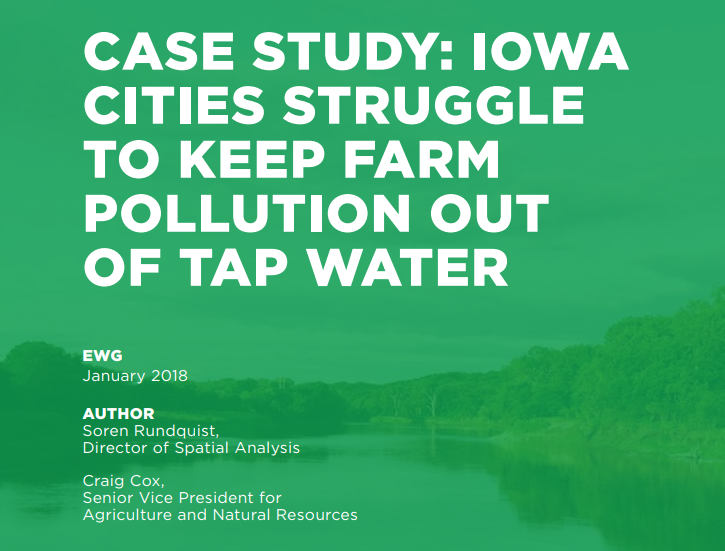Iowa Cities Struggle To Keep Farm Pollution Out of Tap Water - Case Study
Published on by Water Network Research, Official research team of The Water Network in Academic
Agriculture is vital to the Iowa's economy, but polluted runoff from farms poses an acute threat to residents’ tap water—and a daunting challenge to utilities struggling to keep the water clean.
Pollution of source water from farm runoff puts utilities between a rock and a hard place. They don’t control what happens in the watersheds or above the underground aquifers from which they draw drinking water. But utilities and their customers bear the cost of cleaning contaminants out of the water and adhering to federal regulations.

Almost three-fourths of the Raccoon River’s watershed—1.7 million acres—is planted with corn, soybeans and other crops, treated each year with millions of pounds of fertilizer and other chemicals. It is also home to 2.3 million hogs and 16 million chickens and turkeys, whose manure is applied to millions of acres annually.
At the southern tip of the watershed is the city of Des Moines, where each day the Des Moines Water Works supplies water drawn from the river to just over half a million people. Commercial fertilizers and manures contain a chemical called nitrate, a form of nitrogen, which gets into the river when rain washes it off fields. It can be fatal to babies who ingest too much of the chemical in tap water and it has also been linked to cancer in adults.
Read full article: EWG
Read and download the full case study: EWG
Media
Taxonomy
- Agriculture
- Water Pollution
- Urban Drainage
- Pollution
- Urban Water
- Water Pollution Control
- Stormwater Runoff
- Pollution
- Agriculture